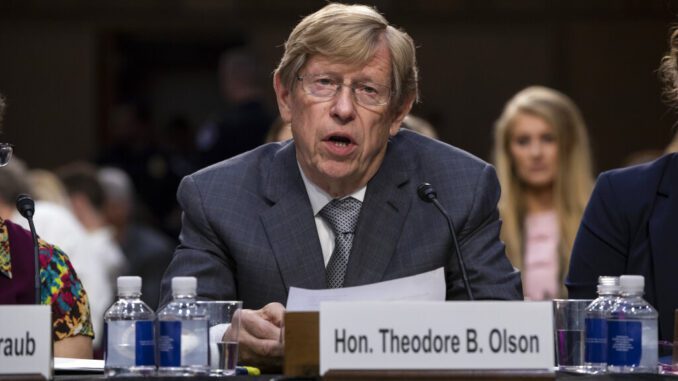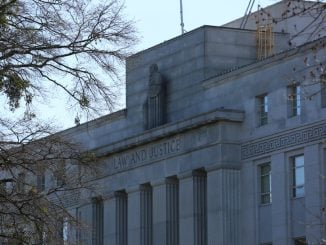
WASHINGTON, D.C. — Civil liberties groups are asking the Supreme Court to give the public access to opinions of the secretive court that reviews bulk email collection, warrantless internet searches and other government surveillance programs.
The groups say in an appeal filed with the high court Monday that the public has a constitutional right to see significant opinions of the Foreign Intelligence Surveillance Court. They also argue that federal courts, not the executive branch, should decide when opinions that potentially affect the privacy of millions of Americans should be made public.
The appeal was filed by Theodore Olson, the American Civil Liberties Union, the Knight First Amendment Institute at Columbia University and Yale Law School’s Media Freedom and Information Access Clinic. Olson is on the Knight institute’s board and was the Bush administration’s top Supreme Court lawyer as the FISA court’s role was expanded after the Sept. 11 terrorist attacks.
“You’re talking about judicial decisions here that may affect millions of people. The public needs to know the outlines of what those decisions are and how far they go,” Olson said in an interview with The Associated Press. “Because of my experience with it, I know that government, with the best of intentions, will tend to err on the side of keeping everything secret.”
The Foreign Intelligence Surveillance Court was established in 1978 to receive applications from the FBI to eavesdrop on people it suspects of being agents of a foreign power, such as potential spies or terrorists. After Sept. 11, Congress expanded the court’s role to consider broad surveillance programs.
In recent decisions, judges ruled that opinions sought by the groups couldn’t be made public, even in censored form, and that they didn’t even have the authority to consider releasing the opinions.
Legislation adopted in 2015 includes a provision that requires the government to consider releasing significant FISA court opinions. But the law doesn’t apply to opinions written before it was enacted and leaves the review process entirely to the executive branch.
The high-court appeal says the First Amendment’s guarantee of freedom of the press demands greater access.
The Justice Department had no comment on the filing Monday. Its response is due at the court by late May.
The ACLU has been seeking the FISA court opinions for years, and the current case dates to 2016.
“These opinions and orders address, among other matters, the lawfulness of bulk email searches, the government’s authority to surreptitiously install malware on Americans’ computers, and the use of warrantless internet surveillance for cybersecurity purposes,” the appeal says.



